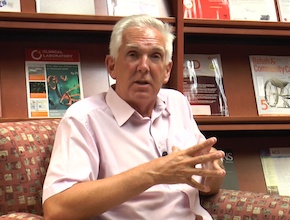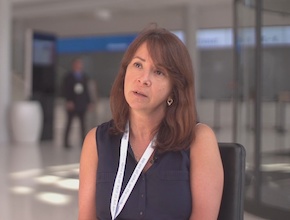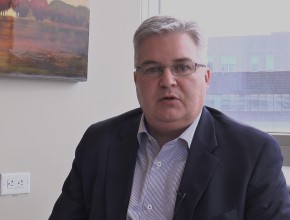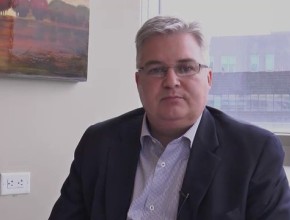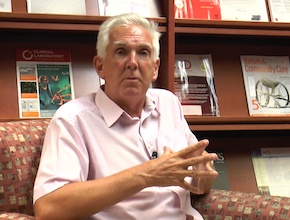Related McMaster Perspective episodes
Devereaux PJ, Jaeschke R. Cardiac complications after noncardiac surgery.References
Devereaux PJ, Sessler DI. Cardiac Complications in Patients Undergoing Major Noncardiac Surgery. N Engl J Med. 2015 Dec 3;373(23):2258-69. doi: 10.1056/NEJMra1502824. Review. PubMed PMID: 26630144.McFalls EO, Ward HB, Moritz TE, et al. Coronary-artery revascularization before elective major vascular surgery. N Engl J Med. 2004 Dec 30;351(27):2795-804. PubMed PMID: 15625331.
POISE Study Group, Devereaux PJ, Yang H, Yusuf S, et al. Effects of extended-release metoprolol succinate in patients undergoing non-cardiac surgery (POISE trial): a randomised controlled trial. Lancet. 2008 May 31;371(9627):1839-47. doi: 10.1016/S0140-6736(08)60601-7. PubMed PMID: 18479744.
Devereaux PJ, Sessler DI, Leslie K, et al; POISE-2 Investigators. Clonidine in patients undergoing noncardiac surgery. N Engl J Med. 2014 Apr 17;370(16):1504-13. doi: 10.1056/NEJMoa1401106. PubMed PMID: 24679061.
Devereaux PJ, Mrkobrada M, Sessler DI, et al; POISE-2 Investigators. Aspirin in patients undergoing noncardiac surgery. N Engl J Med. 2014 Apr 17;370(16):1494-503. doi: 10.1056/NEJMoa1401105. PubMed PMID: 24679062.
Carson JL, Terrin ML, Noveck H, et al; FOCUS Investigators. Liberal or restrictive transfusion in high-risk patients after hip surgery. N Engl J Med. 2011 Dec 29;365(26):2453-62. doi: 10.1056/NEJMoa1012452. PubMed PMID: 22168590; PubMed Central PMCID: PMC3268062.
Brunskill SJ, Millette SL, Shokoohi A, et al. Red blood cell transfusion for people undergoing hip fracture surgery. Cochrane Database Syst Rev. 2015 Apr 21;(4):CD009699. doi: 10.1002/14651858.CD009699.pub2. Review. PubMed PMID: 25897628.
Roman Jaeschke: Good afternoon. Welcome to another edition of McMaster Perspective. We are continuing to interview Doctor P.J. Devereaux, whose research shapes the perioperative myocardial care of patients over the last decade. Doctor Devereaux, in the previous section [see: Cardiac complications after noncardiac surgery] you told us that the problem [of cardiac complications after noncardiac surgery] is quite common; I think you mentioned something about 8 million people per year around the world. We also explored the ways to identify such patients prior to surgery. The next segment which I would like to explore with you is what to do prior to surgery to people identified to be at higher risk. Are there any interventions which were tested and proven of benefit to decrease the perioperative risks of myocardial ischemia?
P.J. Devereaux: Several different interventions have been evaluated to see if they can improve perioperative cardiac risk prediction [and efficacy of interventions]. The first has been preoperative coronary revascularization. The trial that has provided the most insight into this is the CARP trial. It evaluated approximately 500 patients undergoing vascular surgery who had known coronary artery disease with a 70% stenosis that was amenable to revascularization. In this study, they demonstrated that preoperative coronary revascularization compared to just directly proceeding to vascular surgery showed no improvement in short- or long-term outcomes. As a result of this, we no longer recommend routine evaluation for underlying severe coronary disease and elective revascularization in the period before surgery. If, however, a patient does have unstable symptoms and they are having a surgery for which it is elective and surgery can be delayed – such as a knee arthroplasty – then in those patients it is probably reasonable to consider coronary revascularization, but you will likely have to look at delaying the surgery for at least 6 months after the revascularization happens.
The second area of focus that people have evaluated is trying to control the perioperative stress response to surgery. The first area that has been looked at is ß-blockers. The largest trial in this area is called the POISE trial; it randomized 8,351 patients in 190 centers worldwide and demonstrated that preoperative ß-blockers do have a benefit: they do decrease the risk of myocardial infarction the first 30 days after the surgery. However, they increase the risk of mortality and stroke. This appeared to be increased through the increased risk of hypotension with the ß-blockers that happen on surgical floors. It appeared that it did not matter why you became hypotensive – it could have been due to bleeding, heart failure, infection, too much pain medication, or just the effect of the ß-blocker itself. But if you became hypotensive with the ß-blockers, these patients were demonstrated to be at very high risk of dying or suffering a subsequent stroke.
Based upon this information, the POISE II investigators completed a trial of over 10,010 patients, who were randomized to low-dose clonidine versus placebo. Clonidine built on the information from the ß-blocker story in that clonidine is another mechanism through which one can control the stress response in the surgical setting. In the POISE II trial, the investigators demonstrated that clonidine did not in fact decrease the risk of myocardial infarction in this setting. However, what became apparent from the physiological facts of clonidine compared to ß-blocker is that although clonidine had less hypotension – which is one of the parameters that the investigators were targeting, given the negative consequences of hypotension in the ß-blocker POISE I trial – they did not, however, get the same heart rate effect, which likely is why they did not get the benefits of preventing myocardial infarction in the same way that ß-blockers did. This holds out hope that we know that there is benefit to controlling this sympathetic stress response of surgery. However, further work is needed to sort out how to achieve this safely in this setting. I will come back to this later on in this discussion.
The next theory that has been looked at is the issue of aspirin. There has been an intense debate about whether or not aspirin should be continued in those patients who are on it chronically and undergoing surgery, or should it be initiated in patients who are not taking it but are at risk for major cardiac event in the noncardiac surgery setting. POISE II trial also randomized patients who were receiving aspirin to stop their aspirin at least 3 days before surgery, then restart their aspirin on the day of surgery or get placebo, and randomized patients who were not taking aspirin to start aspirin on the day of surgery or to start placebo. What that trial demonstrated was that aspirin did not in fact reduce the risk of myocardial infarction but did increase the risk of major and life-threatening bleeding in the perioperative setting. What this trial also demonstrated was that the risk of major, life-threatening bleeding was ~6% if the patient was to receive aspirin starting just before surgery, which was also equal to the risk of myocardial infarction. This may offer insights into why aspirin did not prevent myocardial infarction in that once the risk of bleeding and the risk of myocardial infarction are equal, it may be difficult for aspirin to win and create benefit. The reason for this is that major bleeding was shown to be its own independent predictor of patients going on to have a subsequent myocardial infarction. We believe that major bleeding, life-threatening bleeding, is in fact a biological pathway that can lead to myocardial infarction.
The next theory that has also been tested in that area has been the issue of transfusions: a trial that looks specifically at patients with hip fractures, at a liberal versus restrictive strategy when to transfuse patients, that is, should they be transfused when their hemoglobin hits 100 [g/L] or when it hits 80 [g/L]. Importantly, the trial showed that in fact we do not need transfused patients when their hemoglobin hits 100 g/L; we can wait till it is below 80 g/L before transfusing, because there was no benefit of transfusing at 100 g/L in the patient population study.
So, those are the interventions that have been tested in this area and the insights that we have gained at this time.
 English
English
 Español
Español
 українська
українська

